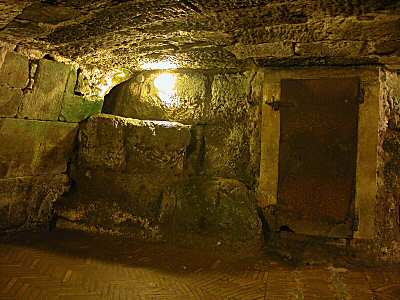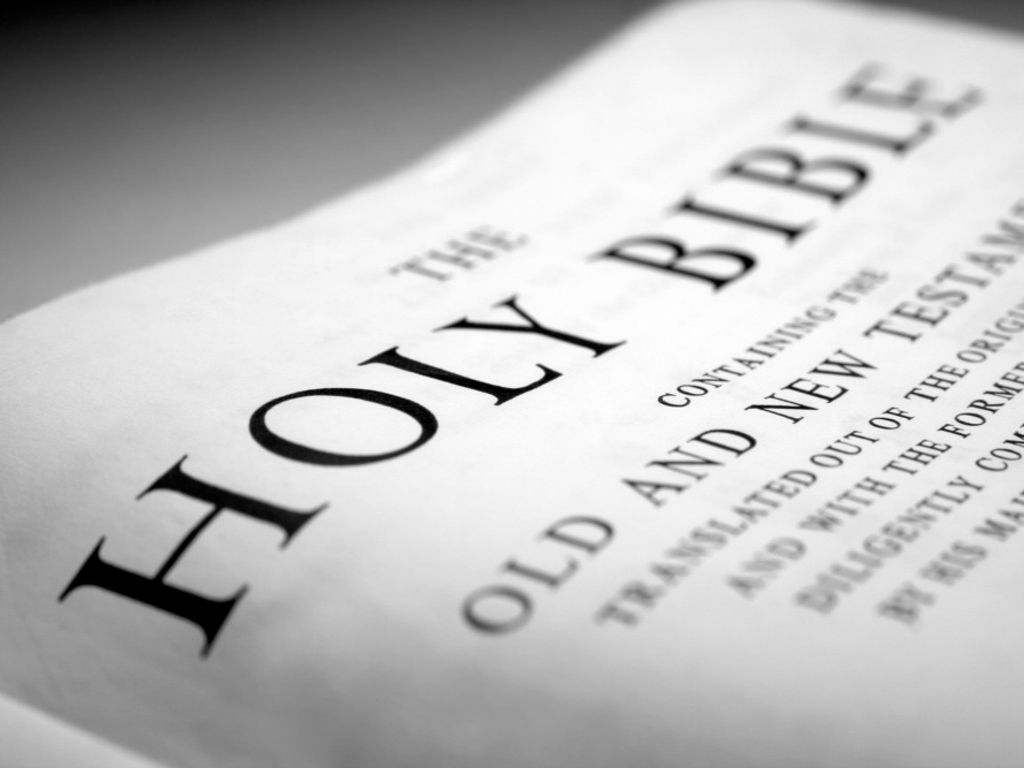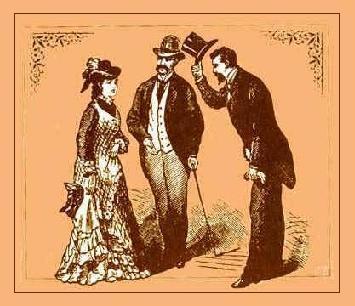“He is with us now. George Muller had on his desk a motto of two words, AND TODAY, from the great verse, “Jesus Christ the same yesterday, and today, and for ever” (Hebrews 13:8). Most of us believe in Christ come and in Christ coming, but we are weak on the middle span of that all-encompassing verse, Christ contemporary. “…lo, I am with you always” is not a promise, it is a fact – not “I will be with you” but “I am with you all the days, including today.”
~Vance Havner
The daily devotions quotes are from “Pepper ‘n Salt” by Vance Havner. Fleming H. Revell Company, 1966.
Prison in Rome from Biblical times
“Paul was often in chains, a minister in manacles, a prophet in prison. The only stocks and bonds he knew were stocks for his feet and bonds for his wrists. But…
Stone walls do not a prison make,
Nor iron bars a cage.
Though often chained in prisons dark, he was in heart and conscience free. He was an ambassador in bonds not of his own making. Alas! we languish today in fetters of our own forging.”
~Vance Havner
Believe Your Beliefs
By Vance Havner
What things soever ye desire, when ye pray, believe that ye shall receive them, and ye shall have them.
Mark 11:24
Believer that you have and you shall have – that is the grammar of faith! We are to ask for wisdom but we must ask in faith, nothing wavering (James 1:6). The believer already has all things in Christ, and by faith he lays hold of what is already his.
We must not only believe that we receive, we must believe that we believe. We must believe our beliefs and doubt our doubts. Alas, we doubt our beliefs and believe our doubts! To be always examining our faith is to destroy it. There is a strange twist of mind that afflicts some harassed souls who can never be sure of anything. These are ever learning but never able to come to a knowledge of the truth.
We must give ourselves credit for such faith as we can muster. The father of the demonized boy said to our Lord, “Lord, I believe; help thou mine unbelief.” His faith was weak and mixed with unbelief and he knew it, but he knew that he had at least a little faith and that faith he asserted. Of course, our faith, like every other good and perfect gift, is of God, but God expects us to use it, affirm it, not doubt it. “If thou canst believe” implies that we can if we will. God would not ask us to believe if we could not.
Facts about the Bible
The following list is not designed to discuss doctrine, or provide in-depth teaching. It is merely a resource center for factual information on the Bible. Many of these questions have been addressed in various locations throughout our website; however, as many people do not have the time to comb through the entire website to find the answers they are looking for, we have compiled the following list.
How many books are in the Bible?
The Bible contains 66 books, divided among the Old and New Testaments.
How many books are in the Old Testament?
There are 39 books in the Old Testament.
How many books are in the New Testament?
There are 27 books in the New Testament.
What does “testament” mean?
Testament means “covenant” or “contract.”
Who wrote the Bible?
The Bible was written under the inspiration of the Holy Spirit by over 40 different authors from all walks of life: shepherds, farmers, tent-makers, physicians, fishermen, priests, philosophers and kings. Despite these differences in occupation and the span of years it took to write it, the Bible is an extremely cohesive and unified book.
Which single author contributed the most books to the Old Testament?
Moses. He wrote the first five books of the Bible, referred to as the Pentateuch; the foundation of the Bible.
Which single author contributed the most books to the New Testament?
The Apostle Paul, who wrote 14 books (over half) of the New Testament.
When was the Bible written?
It was written over a period of some 1,500 years, from around 1450 B.C. (the time of Moses) to about 100 A.D. (following the death and resurrection of Jesus Christ).
What is the oldest book in the Old Testament?
Many scholars agree that Job is the oldest book in the Bible, written by an unknown Israelite about 1500 B.C. Others hold that the Pentateuch (the first five books of the Bible) are the oldest books in the Bible, written between 1446 and 1406 B.C.
What is the youngest book in the Old Testament?
The book of Malachi, written about 400 B.C.
What is the oldest book of the New Testament?
Probably the book of James, written as early as A.D. 45.
What is the youngest book in the New Testament?
The Book of Revelation is the youngest book of the New Testament, written about 95 A.D.
What languages was the Bible written in?
The Bible was written in three languages: Hebrew, Aramaic, and Koine Greek.
When was the Bible canonized?
The entire New Testament as we know it today, was canonized before the year 375 A.D. The Old Testament had previously been canonized long before the advent of Christ.
What does “canon” mean?
“Canon” is derived front the Greek word “Kanon,” signifying a measuring rod. Thus, to have the Bible “canonized” meant that it had been measured by the standard or test of divine inspiration and authority. It became the collection of books or writings accepted by the apostles and leadership of the early Christian church as a basis for Christian belief. It is the standard by which all Christians throughout the ages live and worship.
When was the first translation of the Bible made into English?
1382 A.D., by John Wycliffe.
When was the Bible printed?
The Bible was printed in 1454 A.D. by Johannes Gutenberg who invented the “type mold” for the printing press. It was the first book ever printed.
What is the oldest almost-complete manuscript of the Bible now in existence?
The Codex Vaticanus, which dates from the first half of the fourth Century. It is located in the library of the Vatican in Rome. There are older fragments of the Bible that are still preserved however– the oldest being a tiny scrap of the Gospel of John was found in Egypt, dating back to the beginning of the second century. (It is currently in the Rayland’s Library in Manchester, England).
What is the longest book in the Bible?
The book of Psalms.
What is the shortest book in the Bible?
2 John.
What is the longest chapter in the Bible?
Psalm 119
What is the shortest chapter in the Bible?
Psalm 117
What is the longest verse in the Bible?
Esther 8:9
What is the shortest verse in the Bible?
John 11:35
Which book in the Bible does not mention the word “God?”
The book of Esther.
Who was the oldest man that ever lived?
Methuselah who lived to be 969 years old (Genesis 5:27).
Who were the two men in the Bible who never died but were caught up to heaven?
Enoch, who walked with God and was no more (Genesis 5:22-24). Elijah, who was caught up by a whirlwind into heaven (II Kings 2:11).
Who does the Bible say was the meekest man in the Bible (not including Jesus)?
Moses (Numbers 12:3).
How many languages has the Bible been translated into?
The Holy Bible has been translated into 2,018 languages, with countless more partial translations, and audio translations (for unwritten languages). (This is an enormous amount of translations. In comparison, Shakespeare, considered by many to be the master writer of the English language, has only been translated into 50 languages.)
Is the Bible still the best-selling book in the world?
Yes, indeed!
References
American Bible Society, 1865 Broadway, New York, NY 10023
Halley, Henry H. Halley’s Bible Handbook (Grand Rapids: Zondervan Publishing House, 1927, 1965).
Maxwell, Arthur. Your Bible And You (Washington D.C.: Review and Herald Publishing Association, 1959).
Mickelson, A. Berkley and Alvera. Understanding Scripture (Peabody: Hendrickson Publishers, 1982, 1992).
Unger, Merrill F. TH.D., PH.D. Unger’s Bible Handbook (Chicago: Moody Press, 1967)
Now Where or Now Here
By Vance Havner
The fool hath said in his heart, There is no God.
Psalm 14:1
Emmanuel…God with us.
Matthew 1:23
He dwelleth with you, and shall be in you.
John 14:17
An atheist had a sign on the wall of his office that read, “God Is Nowhere.” A little girl saw it and exclaimed, “Look! It says, ‘God Is Now Here!’”
Today godless and lawless millions deny God’s very existence. But there are still many who have not bowed to this Baal, who know that the Word became flesh and that in the Holy Spirit God is not only with us but in us.
The struggle is between the “Nowheres” and the “Now Heres.” “is the Lord among us, or not?” (Ex. 17:7) – that is the issue. The fool hath said in his heart, “There isnot God,” because God is not in his heart. The Christian says there is a God, because God is in his heart. He means more than merely that God is or that God is somewhere. He says God is now here, because God is a present, living reality.
He lives within my heart!
These are they who know that the tabernacle of the Lord is with men because He lives in us, the temples of His Holy Spirit.
Faith
by Pastor Cornelius R. Stam
Faith is one of the most precious treasures a man can possibly possess. It is a pity that so few understand what the Bible teaches about it.
Faith is often confused with presumption, optimism, determination, superstition and imagination. Actually it is simply believing. This is why we read in Romans 4:5:
“But to him that worketh not, but believeth on Him that justifieth the ungodly, his faith is counted for righteousness.”
Obviously, faith honors God, while doubting His Word must insult and displease Him. The Apostle John wrote:
“If we receive the witness of men, the witness of God is greater…. He that believeth not God hath made Him a liar; because he believeth not the record that God gave of His Son.
“And this is the record: that God hath given to us eternal life, and this life is in His Son” (I John 5:9-11).
Little wonder that we read in Hebrews 11:6:
“Without faith it is impossible to please Him, for he that cometh to God must believe that He is, and that He is a rewarder of them that diligently seek Him.”
But why did God give the law, if salvation can be obtained by simple faith? The Apostle Paul answers:
“The law was our schoolmaster, to bring us unto Christ, that we might be justified by faith” (Galatians 3:24).
“Do we then make void the law through faith? God forbid: yea, we establish the law”
(Romans 3:31).
How grateful we all should be that God, in the Bible, has told us about redemption through Christ and how we may be saved by faith in Him!
“[Christ] was delivered for our offences, and was raised again for our justification. Therefore, being justified by faith we have peace with God through our Lord Jesus Christ” (Romans 4:25; 5:1).
The Importance of Etiquette
February 24, 2015
“The gold bells and the pomegranates are to alternate around the hem of the robe. Aaron must wear it when he ministers. The sound of the bells will be heard when he enters the Holy Place before the LORD and when he comes out, so that he will not die.” — Exodus 28:34–35
The Torah portion for this week is Tetzaveh, which means “contributions,” from Exodus 27:20–30:10, and the Haftorah is from Ezekiel 43:10–27.
Some people say that folks aren’t as polite as they used to be. Some blame it on the Internet; it’s so easy to hide behind a computer screen and say things that one would never say to someone face to face. Others place the blame on our fast-paced society – who has time to be polite? However, as this week’s Torah portion teaches us, etiquette is imperative. No matter the circumstances, we need to be refined, dignified, and polite.
In describing the clothing that the priests were to wear while carrying out their duties, we aren’t told about their particular purposes or symbolic meanings. However, there is one notable exception. When it came to the High Priest’s robe, we are told that the bottom of the garment was required to contain a row of woven pomegranates interspersed with bells. The purpose, Scripture tells us, was so that the bells would signal when the priest entered the Holy of Holies.
The purpose of the bells on the priest’s robe is equivalent to knocking on a door before entering a house or a room. In fact, based on this verse, the Jewish sages teach that one must knock even before entering one’s own home so that the other people present will know that someone is about to enter. This is a lesson in etiquette. We’ve become a very comfortable and informal society – sometimes too comfortable. At times, it is important to be formal in order to preserve the privacy and dignity of others.
However, if God wants to teach us about interpersonal relationships, why here, where the discussion is mainly about our relationship with God? Moreover, surely God would know when the priest was entering the Holy of Holies – He certainly didn’t need any warning!
The sages explain that God chose this particular portion to teach us about the importance of politeness so that we might understand that there is no situation where politeness is not required. Sometimes, we might think that our mission is so important, it’s OK to cut some corners. We try to justify driving aggressively through traffic or elbowing our way through a crowd thinking that the ends justify the means. However, there is nothing more important than communing with God as the High Priest did in the Holy of Holies – and even there, precisely at that moment, etiquette was necessary.
This week, let’s take the time to be polite. It’s the little things, like opening the door for another person or giving up your seat on public transportation to an older person, that make our character all the more refined. As part of our service to God, let’s remember that while it’s nice to be important, it’s more important to be nice.
With prayers for shalom, peace,
Rabbi Yechiel Eckstein
The Beatitude of the “And Yets”
By Vance Havner
Thomas, because thou hast seen me, thou hast believed, blessed are they that have not seen, and yet have believed.
John 20:29
Thomas could have made a great story of his experience, for few ever had such a privilege as he. But our Lord did not magnify it: rather He magnified the commoner experience of believing without seeing. All of us can claim that beatitude! It is not so glamorous and it does not make a sensational story, but precious in the sight of the Lord are His saints who can relate no amazing experiences but who believe, anyway.
Peter sensed the importance of walking by faith instead of sight when he wrote, ‘Whom having not seen ye love; in whom, though now ye see him not, yet believing, ye rejoice with joy unspeakable and full of glory.”
And yet have believed…yet believing. There was only one Thomas who could put his finger in the nailprints of the Saviour but their number is legion who have believed without seeing. For reasons best known to Himself our Lord sometimes gives extra tokens to one now and then, but it is very evident that He values highly those who get along without them. Ours is the beatitude of the and yets, and it its blessing we carry on until we see Him as He is.
Administrator’s Note:
To anyone unaware Pastor Cornelius R. Stam left this fleshly realm in March of 2003, at the age of 94.
Pastor Stam at age 80
The First Book To Read
by Pastor Cornelius R. Stam
In years gone by, when life was simpler, men had more time to ponder over the really important questions: What will become of me when I die? Is there a heaven — and a hell? Can I know God? Will He forgive my sins? If so, on what basis? What must I do to be saved?
The materialism, commercialism and technology of our day, however, have so complicated life that secondary problems hinder many people from even considering at leisure that which is most important.
Yet, despite all the hurry and anxiety, all the noise and distraction, there are troubled souls, hungering and thirsting for true satisfaction, for hearts cleansed from sin, for deliverance from the awful burden of a guilty conscience.
Such people should read Paul’s Epistle to the Romans and meditate on its great message of salvation. In fact, this is the first book they ought to read.
In Romans the inspired Apostle declares that “all have sinned” (3:23) and that “the wages of sin is death” (6:23). But this is not all. Romans also proclaims the good news that the Lord Jesus Christ “was delivered for our offences, and was raised again for our justification” and that therefore we may have “peace with God through our Lord Jesus Christ” (4:25; 5:1).
More than this, Romans offers abundant grace to all who trust in Christ. “The law entered that the offence might abound, but where sin abounded grace did much more abound” (5:20,21). Thus believers are “justified freely by [God’s] grace, through the redemption that is in Christ Jesus” (3:24) and “the [free] gift of God is eternal life through Jesus Christ our Lord” (6:23).
We urge those who are not sure of salvation to read carefully and prayerfully this great Epistle to the Romans. You may be thanking God for the rest of your earthly life — and forever — that you did.
20 Bible Verses about Coveting
Exodus 20:17 ESV
“You shall not covet your neighbor’s house; you shall not covet your neighbor’s wife, or his male servant, or his female servant, or his ox, or his donkey, or anything that is your neighbor’s.”
James 4:3 ESV
You ask and do not receive, because you ask wrongly, to spend it on your passions.
Mark 7:20-23 ESV
And he said, “What comes out of a person is what defiles him. For from within, out of the heart of man, come evil thoughts, sexual immorality, theft, murder, adultery, coveting, wickedness, deceit, sensuality, envy, slander, pride, foolishness. All these evil things come from within, and they defile a person.”
Romans 7:7 ESV
What then shall we say? That the law is sin? By no means! Yet if it had not been for the law, I would not have known sin. For I would not have known what it is to covet if the law had not said, “You shall not covet.”
James 1:14-15 ESV
But each person is tempted when he is lured and enticed by his own desire. Then desire when it has conceived gives birth to sin, and sin when it is fully grown brings forth death.
1 Timothy 6:10 ESV
For the love of money is a root of all kinds of evils. It is through this craving that some have wandered away from the faith and pierced themselves with many pangs.
2 Corinthians 9:8 ESV
And God is able to make all grace abound to you, so that having all sufficiency in all things at all times, you may abound in every good work.
Acts 20:33-35 ESV
I coveted no one’s silver or gold or apparel. You yourselves know that these hands ministered to my necessities and to those who were with me. In all things I have shown you that by working hard in this way we must help the weak and remember the words of the Lord Jesus, how he himself said, ‘It is more blessed to give than to receive.’”
Matthew 6:33 ESV
But seek first the kingdom of God and his righteousness, and all these things will be added to you.
Deuteronomy 5:21 ESV
“‘And you shall not covet your neighbor’s wife. And you shall not desire your neighbor’s house, his field, or his male servant, or his female servant, his ox, or his donkey, or anything that is your neighbor’s.’
Ephesians 5:3 ESV
But sexual immorality and all impurity or covetousness must not even be named among you, as is proper among saints.
Ephesians 4:28 ESV
Let the thief no longer steal, but rather let him labor, doing honest work with his own hands, so that he may have something to share with anyone in need.
Micah 2:1-13 ESV
Woe to those who devise wickedness and work evil on their beds! When the morning dawns, they perform it, because it is in the power of their hand. They covet fields and seize them, and houses, and take them away; they oppress a man and his house, a man and his inheritance. Therefore thus says the Lord: behold, against this family I am devising disaster, from which you cannot remove your necks, and you shall not walk haughtily, for it will be a time of disaster. In that day they shall take up a taunt song against you and moan bitterly, and say, “We are utterly ruined; he changes the portion of my people; how he removes it from me! To an apostate he allots our fields.” Therefore you will have none to cast the line by lot in the assembly of the Lord. …
2 Samuel 11:1-17 ESV
In the spring of the year, the time when kings go out to battle, David sent Joab, and his servants with him, and all Israel. And they ravaged the Ammonites and besieged Rabbah. But David remained at Jerusalem. It happened, late one afternoon, when David arose from his couch and was walking on the roof of the king’s house, that he saw from the roof a woman bathing; and the woman was very beautiful. And David sent and inquired about the woman. And one said, “Is not this Bathsheba, the daughter of Eliam, the wife of Uriah the Hittite?” So David sent messengers and took her, and she came to him, and he lay with her. (Now she had been purifying herself from her uncleanness.) Then she returned to her house. And the woman conceived, and she sent and told David, “I am pregnant.” …
Proverbs 28:22 ESV
A stingy man hastens after wealth and does not know that poverty will come upon him.
Joshua 7:21 ESV
When I saw among the spoil a beautiful cloak from Shinar, and 200 shekels of silver, and a bar of gold weighing 50 shekels, then I coveted them and took them. And see, they are hidden in the earth inside my tent, with the silver underneath.”
James 1:17 ESV
Every good gift and every perfect gift is from above, coming down from the Father of lights with whom there is no variation or shadow due to change.
Romans 7:1-25 ESV
Or do you not know, brothers—for I am speaking to those who know the law—that the law is binding on a person only as long as he lives? For a married woman is bound by law to her husband while he lives, but if her husband dies she is released from the law of marriage. Accordingly, she will be called an adulteress if she lives with another man while her husband is alive. But if her husband dies, she is free from that law, and if she marries another man she is not an adulteress. Likewise, my brothers, you also have died to the law through the body of Christ, so that you may belong to another, to him who has been raised from the dead, in order that we may bear fruit for God. For while we were living in the flesh, our sinful passions, aroused by the law, were at work in our members to bear fruit for death. …
Luke 10:25-37 ESV
And behold, a lawyer stood up to put him to the test, saying, “Teacher, what shall I do to inherit eternal life?” He said to him, “What is written in the Law? How do you read it?” And he answered, “You shall love the Lord your God with all your heart and with all your soul and with all your strength and with all your mind, and your neighbor as yourself.” And he said to him, “You have answered correctly; do this, and you will live.” But he, desiring to justify himself, said to Jesus, “And who is my neighbor?” …
Romans 7:18 ESV
For I know that nothing good dwells in me, that is, in my flesh. For I have the desire to do what is right, but not the ability to carry it out.
God’s Geography
By Vance Havner
He brought me forth also into a large place.
Psalm 18:19
It may be only a pin-point on the map but if it is the Lord’s place for us, it is a large place. God’s geography does not read like ours. His ways are not our ways and His standards of greatness and success are foolish to this world. An obscure country church, even the bedroom of an invalid, may be a great place if it is the place of His will and lit with His presence.
And anywhere we may go, it is a large place if God be with us.
My country is in every clime;
I can be calm and free from care
On any shore, since God is there.
Madame Guyon found that God makes the place. Watch your harassed tourist trying to get away from it all. Alas, it matters not where he goes, he has to take himself along and there lies the problem. But
To souls impressed with sacred love.
Blessed is he who travels by God’s geography. With him a stone pillow in a strange land may mark the house of God and the gate to heaven.



















Leave a Reply, please --- thank you.